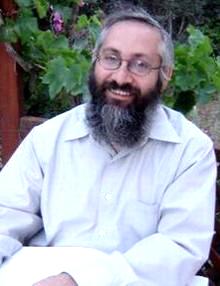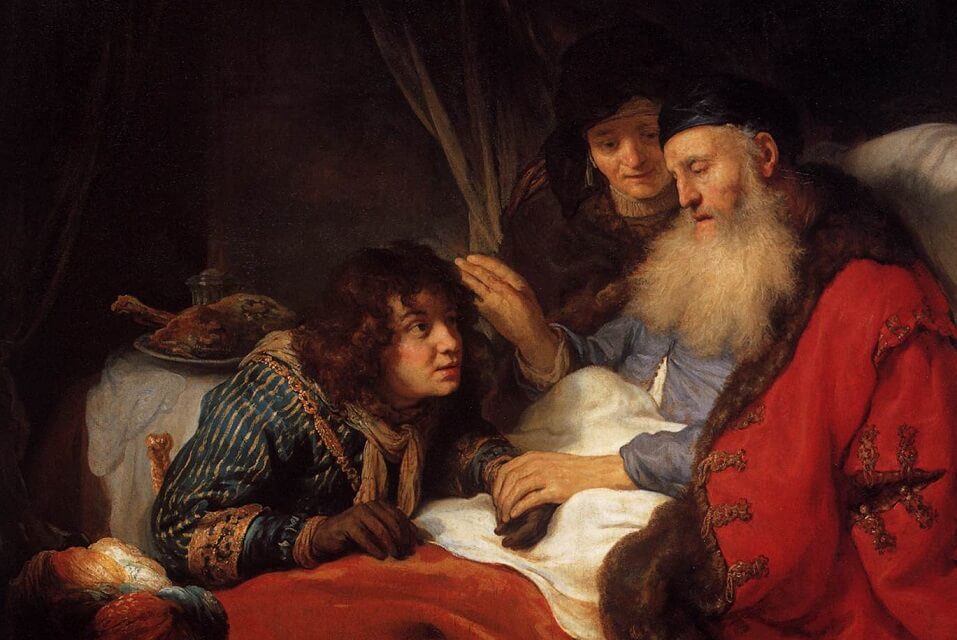Harnessing the Power of Esav
(Based of the teeachings of Rabbi Kook.)
By Rabbi Chanan Morrison (https://www.ravkooktorah.org/)

We know little about the birth of most Biblical personalities. Yet, the Torah describes in detail the birth of Jacob and Esau and their respective naming.
“The first one came out reddish, hairy all over like a fur coat. They named him Esau. His brother then came out, his hand grasping Esau’s heel. He named him Jacob.” (Gen. 25:25-26)
The name Esau means “made” or “completed.” From day one, Esau was full of strength and energy. The name Jacob (Ya’akov) refers to the fact that he was holding on to Esau’s heel (ekev). Later on, Jacob is named a second time; here too, his name refers to his relationship with his brother Esau. The night before meeting up with Esau, he struggles with a mysterious stranger. This stranger — according to some, Esau’s guardian angel — informs him:
“Your name will no longer be Jacob, but Israel. You have struggled with angels and men, and you have prevailed” (Gen. 32:29).
What is the inner meaning of Jacob’s names? What is the significance of his grasping on to Esau’s heel? Why does he have two names?
Restraint versus Control
Just as there are both positive and negative forces in the world, so too, every person is a composite of positive and negative traits. We need these negative forces, however; without their power and vitality, many goals and aspirations would lack the energy necessary to be realized.
Esau represents the raw, base forces in the world. His reddish complexion indicated the violent and brutal nature of his personality. Jacob did not prevent Esau from coming into the world; after all, the world needs Esau and his raw power. Rather, Jacob held on to Esau’s heel, holding him back. The name Jacob refers to this aspect of restraint, reining in the fierce forces.
Ultimately, however, our goal is not to simply hold back these negative forces. We aspire to gain control over them and utilize them, like a hydroelectric dam that harnesses the vast energy of a raging waterfall for the production of electricity. For example, the Talmud tells us that a person with blood-thirsty tendencies should become a shochet (ritual slaughterer) or a mohel, thus sublimating his violent nature for noble purposes. This higher aspiration is represented by Jacob’s second name, Israel, which comes from the root-word sar, meaning “to rule.”
The name Jacob is appropriate when the Jews are in the Diaspora. There, they serve as a moral conscience to partially restrict the wild and violent forces in the world. But when redeemed and living in their own land, the Jewish people are able to attain the higher level of Israel. Then they have the opportunity to demonstrate how a nation may utilize its material capabilities for constructive and ethical goals.
(Gold from the Land of Israel, pp. 58-59. Adapted from Ein Eyah vol. I, p. 68)
The account of Jacob stealing blessings from his father raises many perplexing questions. How could Isaac not be aware of the true nature of his twin sons? Why did he insist on blessing his apparently wicked son Esau? And why was it necessary for Jacob to get the blessings that his father intended for his brother?
The Rights of the First-Born
We need to first analyze the concept of bechorah, the right of the first-born. Why should the family inheritance be determined by order of birth, without taking into account the relative merits of the heirs? The Talmud in Baba Batra 133b discusses this issue, advising against switching the inheritance, even if the first-born is wicked and his sibling is righteous. Why? The commentators explain that we should not make decisions based on the current situation; in the future, worthy children may come from the evil son.
Still, why not give preference to the son whom we know to be righteous and will use the inheritance for proper objectives? Why let the evil son utilize this wealth for corrupt purposes, just because of a possibility that he may have upright children?
Segulah Selection
Twelfth-century philosopher Rabbi Yehudah HaLevi explained the concept of segulah – how a particular people is chosen by God. The process of divine selection is beyond human understanding and occurs in a hidden manner. The kernel of light and good is concealed in an enveloping darkness, just as the spiritual greatness of Abraham could not be foreseen in the wickedness of his idolatrous father Terach. Only in the time of Jacob was the segulah nature of his children revealed to all. At that time it became apparent that his entire family was a “seed blessed by God.”
Why should this kernel of future good be concealed in evil and wicked people?
Even negative character traits have their place in the world. Ultimately, they too will serve the greater good. In order to perfect righteous traits and straight paths, these bad traits and convoluted ways must be uplifted. This occurs when the righteous are able to utilize them for their true purpose.
Isaac’s Love for Esau
The process of divine selection must be free to progress according to God’s design, without human intervention. Only God knows the path by which the pure will come forth out of the impure. Therefore, we should not disrupt the inheritance of the first-born according to what seems to us reasonable and logical.
Isaac felt that, despite Jacob’s obvious spiritual and moral superiority, it was not up to him to decide who will carry on Abraham’s spiritual legacy. Isaac assumed that the separating of the segulah was not yet complete. Perhaps from the cruel and brutal traits of Esau, his first-born son, would come an even greater heir, capable of utilizing and elevating those destructive traits.
Furthermore, Isaac knew that the world may be mended in different ways. It could be gently uplifted, as people stream from every corner of the earth to learn Israel’s teachings of kindness and truth. Or the world could be rectified through the complete destruction of those corrupt and violent elements from which no good will come (as we see in the obligation to destroy Amalek and the nations of Canaan). Jacob, the gentle scholar in the tents of Torah, did not possess the temperament necessary to wage wars and fight against cruel and vicious opponents. How could the segulah of Israel come from him? True, Jacob was righteous — but many righteous individuals lived before him whose progeny did not continue in their path.
Jacob appeared to totally lack these necessary traits of dominance and power. And Esau was anyway the firstborn, a sign that he was chosen by God. Isaac valued Esau’s potential to forcibly correct the entire world. The Torah thus explains Isaac’s love of his firstborn son: “Isaac loved Esau, for his hunt was in his mouth” (Gen. 25:28). Isaac appreciated Esau’s ability to hunt and dominate the beasts, the trait needed to dominate bestial peoples.
The Torah contrasts the different ways in which Isaac and Rebecca loved their sons. On the one hand, it says, “Isaac will love Esau” (with the conversive Vav switching it to the past tense). Isaac valued Esau’s future, his progeny, not his present state which even Isaac could see was savage and violent. But for Rebecca, the Torah uses the present tense: “Rebecca loves Jacob.” She loved and appreciated Jacob’s current state of righteousness.
Esau Under Jacob’s Hand
In fact, Jacob did have a connection to his brother’s traits of cruelty, but these traits were not an integral part of his soul. This is the significance of Jacob’s hand holding on to Esau’s heel when they were born. The heel represents instinctive nature (the Hebrew words for ‘foot’ and ‘habit,’ regel and hergel, share the same root), while the hand indicates willed and planned action. Jacob had a hold onto Esau’s heel, i.e., a connection to those savage traits that were an intrinsic part of Esau’s nature. For Jacob, however, these traits were not wild and undisciplined, but under the control of his hand and mind.
(We find a similar idea with regard to King David. The Midrash states that Samuel was reluctant to anoint David as king after he saw David’s ruddy complexion. Samuel feared this was a sign that David would spill blood like the reddish Esau. But God responded, “He has beautiful eyes.” Esau killed for his own pleasure, but David will kill according to the dictates of the Sanhedrin (the high court), which is called the “eyes of the people.”)
Jacob will be capable of performing the same brutal actions as Esau, albeit out of necessity and judicious choice. He will be distressed by the need to utilize his brother’s characteristics, but will recognize their usefulness in achieving the final goal.
Acquiring Esau’s Blessings
Now we understand why Isaac preferred Esau. But why did Jacob need to take his brother’s blessing?
Jacob realized that he was the true spiritual heir, and he needed the blessings of rule and sovereignty — “nations will serve you,” “you will be a like a lord over your brother.” But it was important that his father think that fierce Esau was the object of the blessing. These blessings require strength and leadership. They helped Jacob utilize Esau’s traits when necessary, even though they were not part of his inner nature. Therefore, his mother clothed him in Esau’s garments. For the sake of the blessings of stable rule and firm reign, Jacob’s outer appearance needed to be like that of ruthless Esau.
When Jacob announced to his father, “I am Esau your first-born,” he did not truly lie. Jacob had truly acquired his brother’s traits. He had become Esau, only in a better fashion. Most certainly, his father had spoken to him in the past about the need to acquire these negative traits for the sake of serving God. Jacob could now proudly report to his father, “I have done as you have requested,” And afterwards, Isaac was able to declare, “I have eaten of all.” All that I desired to taste, I have found in Jacob. “Yes, he shall be blessed.”
(Gold from the Land of Israel pp. 60-64. Adapted from Midbar Shur, pp. 265-272)
Illustration image: ‘Isaac Blessing Jacob’ (Govert Flinck, 1638)






